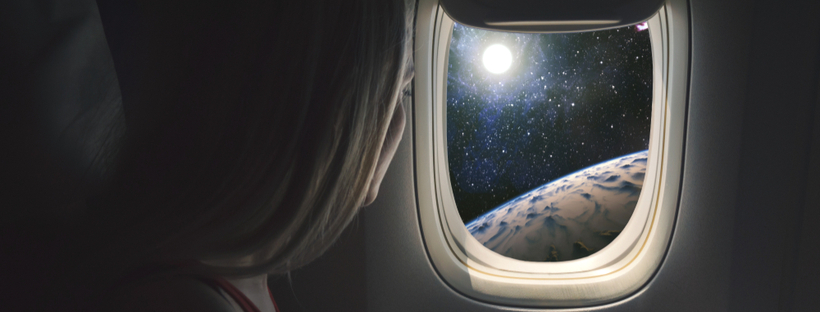
To the Moon, Alice: The Future of Space Tourism
In a decade, space tourism will become at least a $20 billion annual revenue business, with the broader space industry doubling in market capitalization to $805 billion by 2030, according to UBS.
To view the full article please register below:
To the Moon, Alice: The Future of Space Tourism
In a decade, space tourism will become at least a $20 billion annual revenue business, with the broader space industry doubling in market capitalization to $805 billion by 2030, according to UBS.1
The leaders in the developing space tourism industry are two very familiar companies: Sir Richard Branson’s Virgin Galactic and Jeff Bezo’s Blue Origin.
Virgin Galactic, which is the only pure, publicly-traded space tourism company, recently sent a test passenger into flight. The company has already sold over 600 tickets at $250,000 a piece for a flight that will take customers to space—about 50 miles above Earth’s surface—during which passengers will experience about five minutes of weightlessness before returning to their starting point. If that sounds like a lot of money, it is, but passengers will also get to spend five days at Virgin’s Spaceport America facility in New Mexico and enjoy a range of membership perks.
Once things get rolling, Virgin Galactic is expecting to conduct 15-20 flights per month.
Blue Origin is following a similar strategy of sending passengers into sub-orbital flight on vehicles holding six passengers. The company has yet to send any people into space.
Elon Musk’s SpaceX is taking a different approach. The company, more known for its success with commercial flights, is branching out into space tourism. Unlike its competitors, though, SpaceX is focusing on lunar trips in which passengers are taken on a ride that swings them around the moon before returning to Earth.
Passengers are being signed up. One such passenger, a Japanese billionaire, made the news with his public call to find a girlfriend to go on the trip with him. It’s been rumored that his search for a girlfriend will be turned into a reality TV show. Ratings are expected to be, well, out of this world.
Less publicized are efforts by an American space company, Orion Span, which announced its intention to build a space hotel, the Aurora Space Station. This hotel will be placed in low earth orbit and accommodate six guests at a time. A room is expected to cost nearly $10 million. The company hopes to become operational by 2022.
Finally, Boeing—through its contract with NASA—secured an option of adding one space tourist to future NASA missions. There has been no word if the lucky passenger will get to fly the ship.
Source:
Please reference disclosures: https://blog-dev.americanportfolios.com/disclosures/












